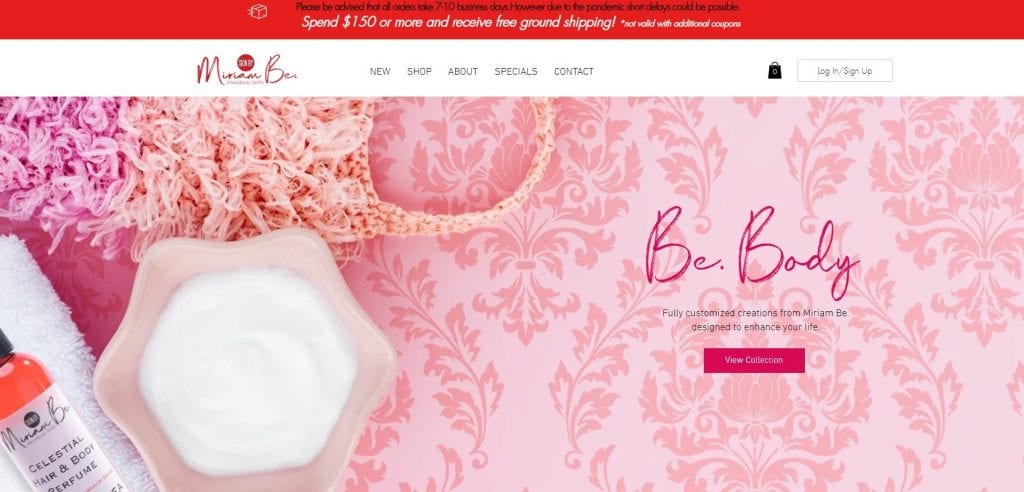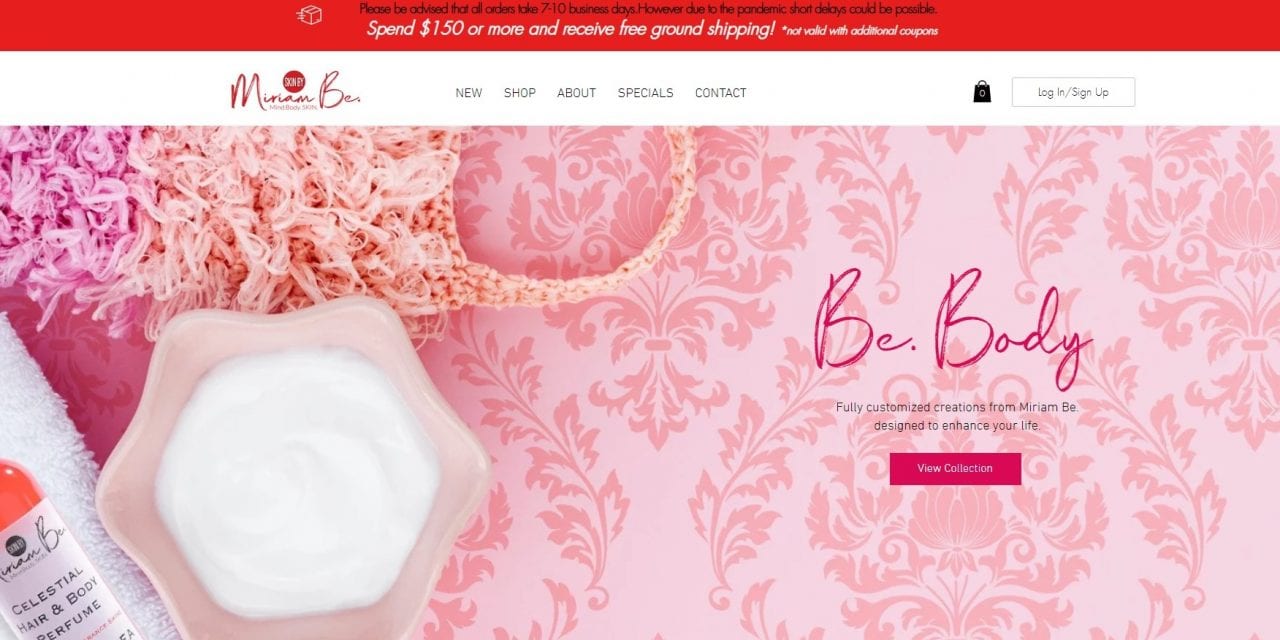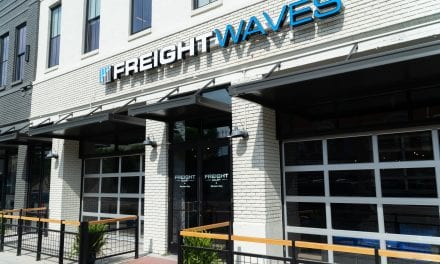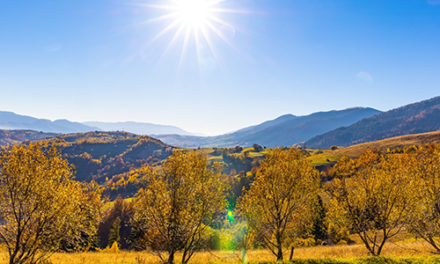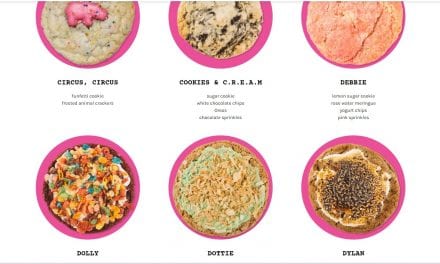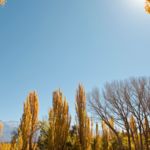Some skin and beauty care products contain ingredients not fit for consumers. According to a 2019 article from The Guardian, “Cosmetics and personal care items women use every day are packed with a constellation of chemicals that health advocates say could be connected to a host of health problems.” The article states, “The US cosmetics and personal care industry—everything from makeup to shampoo, lotion and sunscreen—is largely self-regulated.” It subsequently notes, “Consumer health advocates and some researchers have for years warned that at least some of those [chemicals] are unsafe.”
Barring any major proposals for change, if the cosmetics and personal care industry is self-regulated, then it would be up to the businesses to provide safe options for such products. Locally, Nashville’s Miriam Be provides options for black consumers to purchase all-natural beauty care products. Miriam Be’s sales message promotes “skinfidence,” a term the company defines as “the state of loving the skin [you’re] in.” Selling products for both men and women, the line of soaps, scrubs, toners, creams, and serums are made with non-toxic ingredients. Likening herself to an alchemist, the mind behind the company is both an entrepreneur and an advocate for safer alternatives to what black consumers might buy on the shelves of major retail stores.

The company narrative of Miriam Be begins with a startling revelation in 2012—when founder/operator Miriam Celeste Black was diagnosed with Stage 3 breast cancer after her 40th birthday.
“I worked in corporate America,” Miriam begins, sharing that she worked for a major insurance company as a corporate trainer for underwriters. “My business was actually born out of my breast cancer journey.” This grueling journey, which Miriam describes as “Hell,” consisted of 1.5 years of chemotherapy, followed by a double mastectomy, 33 radiation treatments, and a three-part breast reconstruction process. Miriam tells Launch Engine that her family encouraged her to take up a hobby that would keep her mind off of her treatments.

While undergoing treatment, Miriam wanted to save the look of her skin. She recalls, “During my journey, I was often complimented on the glow and luster of my skin. As a survivor, I have firsthand knowledge and experience of the potentially detrimental effects of chemotherapy and radiation.”
Miriam explains that one day she posted a picture of her feet to Facebook. She had recently used homemade skin butter for her feet, and people began asking her for it. “So, in turn, a skincare business was born,” she says. “Skin products made with love—all-natural, mostly organic with the cancer patient in mind, free from preservatives, known carcinogens, and aluminum. They were made with the cancer patient in mind but [are] great for everyone!!”

Miriam Be was a hobby for Miriam until 2018, when she was laid off from her job. Miriam states that the company “was good to me,” and that the decision was essentially made for her. Not feeling bitter from the layoff, Miriam decided to take a chance on herself by launching MiriamBe as a full-blown business.
“God had a plan,” she says. “Believe me, there were obstacles there. But God has a plan in place. So, at the time that I was laid off from my job, there was a brief moment that I felt like ‘There’s nothing else I can lose. I’ve lost it all…’”
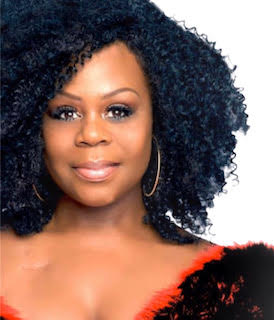
Though painful, the losses that Miriam suffered were avenues for growth—“for the new second chance” that Miriam received to live a purposeful life as an entrepreneur. While undergoing her treatments, Miriam was tested for what might have caused her cancer. She was told by a healthcare professional that the cosmetic products Miriam used may have played a part in her sickness. This made Miriam curious about what was in the products that she was using.
“I found out that those products were full of carcinogens,” she says. She adds that the amount of harmful ingredients in one product might be negligible, but this amount adds up when more than one product is used. Miriam says that in her research, she found that products made for black consumers have more carcinogens than products made for other consumers. What’s more, Miriam also learned that black women face both disproportionate exposure to carcinogens causing breast cancer and the highest risk of serious health complications from the disease.

Miriam says that, despite her health setbacks, she was fortunate enough to have excellent insurance. She muses that such a luxury won’t be afforded to other black consumers, and that it’s better to prevent consumers from getting sick in the first place. Mary says that simple life changes—such as not using dryer sheets or fabric softeners—can save others from going through what she went through with her breast cancer treatments.
Looking for other alternatives, Miriam also researched how beauty care was handled with other cultures, including Asian cultures. She found that “some of the most beautiful women in the world,” were using products or methods inspired by nature. As a black woman, Miriam’s quest was to satisfy black consumers’ desire to feel that they look just as good as other demographics, which she says is a stumbling block for the black community.

Miriam also states that the higher instances of cancer among black women are due to the extra products black women have to use to get their hair to look like a white woman’s hair, which takes considerably more effort. “We’re in a world,” she explains, “A European community. ‘White is right,’ right? I don’t care if it’s against Asians, Blacks, Hispanics, whatever. ‘White is right.’ So, the difference is that the African-American people are the only one of that group that has coarse hair. A lot of times, we want to fit in. We don’t necessarily want to have coarse hair. We want to have straighter hair, and we want to have long hair. That’s what we’re told is sexy. We’ve gotten to the point where we would use any product that we could get our hands on to get us there—not doing any research on what’s in that product.”

The price for Miriam Be’s products may be higher than what people are used to paying. For Miriam, consumers buying her products are making an investment in both beauty and health. The products help different skin sensitivity issues, including dryness and eczema relief.
She says, “A lot of people have problems with eczema… I had some family members who had problems with eczema. I didn’t realize how painful it could be, nor how humiliating it could be and [how it could] affect your self-esteem.” She cites eczema as a common problem in the black community, and explains that it’s related to lower levels of Vitamin D. In turn, she tells Launch Engine this Vitamin D deficiency is because of both higher melanin content in black peoples’ skin and a cultural discouragement from going outside.

As there’s still a lack of knowledge among black consumers about how natural beauty and skin care products can be beneficial, Miriam’s goals for 2020 and 2021 are “more education and distribution” of the product, and expanding her sales message. “I’ve got amazing products, and people need to know about it,” Miriam says. Her products are currently available online, with select products available at The Painted Tree Marketplace in Franklin.
If there’s something to be learned from Miriam’s experience, it’s that the difficulties of being a first-time entrepreneur shouldn’t prevent someone from creating their business. Miriam says that learning the entrepreneurial side of things has been a tremendous challenge for her and that she’s learning all the time. “I love creation,” she says. “The business part is a whole different beast… but I wouldn’t trade it for anything.”
For further information about Miriam Be, including where to purchase products, be sure to visit their website and social media.
